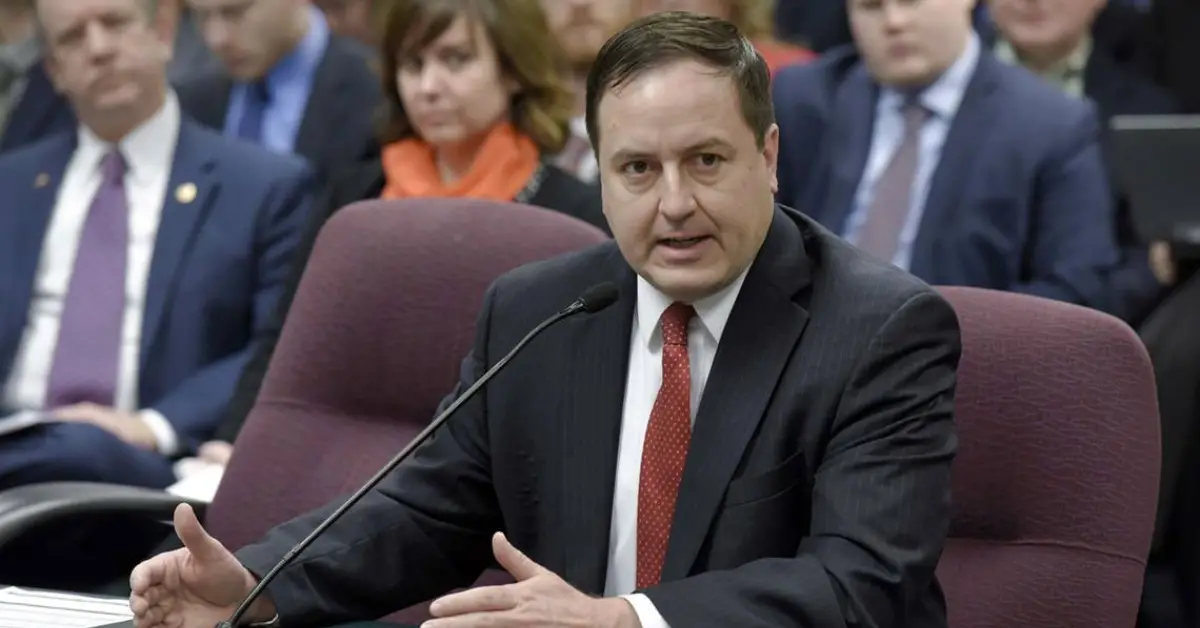Tuesday morning was meant to be Emily Bray’s party. A judge in Texas finally gave the 27-year-old YouTuber the official court order she had been seeking for years: recognition as the woman she had always identified as.
This joy, however, did not last.
After waiting for an hour, she joined a private Facebook group where trans-Texans were discussing the difficulties of navigating the state’s unfriendly climate for gender and name changes. Restricting the use of court orders or birth certificates to change one’s reported sex, the Department of Public Safety had recently implemented a new policy, according to one individual who went to update their driver’s license that day.
“It was like taking a gut punch,” Bray explained to HuffPost.
Despite official changes to birth certificates or court orders, the Texas Driver License Division will no longer update the sex marker on state driver’s licenses, according to an email sent to employees by chief executive officer Sheri Gipson on Tuesday.
A statement from the Texas Department of Public Safety states that the new policy change was initiated due to recent concerns raised by the office of Texas Attorney General Ken Paxton over “the validity” of court orders.
“A thorough legal review by DPS and the OAG is necessary due to the absence of legislative authority and evidentiary standards for the Courts to issue these orders. It is important to note that neither DPS nor other government agencies are parties to the proceedings that result in the issuance of these orders,” the statement read.

An internal email from the DPS also instructs staff to “scan into the record” any paperwork pertaining to sex marker changes that have been ordered by a court, together with the names and ID numbers of the individuals making the request, and to forward this information to an internal email address labeled “Sex Change Court Order.”
What will happen with this data is anybody’s guess. But the Republican attorney general had already asked the DPS for statistics on the number of Texans who had changed their legal sex marker on their licenses two years prior.
SEE MORE –
Texas Department of Public Safety: Court Orders Cannot Alter Gender on Licenses
Paxton has a history of going after trans-Texans, conducting investigations into LGBTQ+ groups and providers, and even going so far as to call gender-affirming health care for young people “child abuse.”
According to a representative from the DPS who talked with The Washington Post two years ago, when Paxton made his request, the data could not be “accurately produced” and the department had not yet delivered any to Paxton’s office.
The proliferation of anti-trans laws and policies in the state, together with Paxton’s actions, has Bray contemplating leaving the state.
Even though her niece, best friend, and family all reside in Texas, she has had to “live with the knowledge, basically since I came out” that she would not be safe there and that the prospect of leaving the state was becoming increasingly serious. “All I’m doing is attempting to determine my exit strategy and what resources I still possess.”
After much deliberation, Bray finally decided to alter her name and gender marker. However, she described the experience as “pulled from underneath” due to the unexpected transition. While a college student in New Orleans in 2019, she made her public debut.
She decided to avoid dealing with the red tape until after she graduated and returned to Austin, as submitting forms in Texas at that time required a personal visit to the courthouse. After the courthouses were closed due to the COVID-19 outbreak, according to Bray, the procedure became murky and unclear.
Things were beginning to click for her in June of this year, though. Hormone replacement therapy has been going on for more than five years. The letter of recommendation from her doctor was all that was needed to prove to a judge that she was transgender and desired to change her gender marker. To file, she had her fingerprints taken and paid the $350 charge.
Tuesday, armed with the court-ordered change to her name and gender marker, she was prepared to apply for a new driver’s license and a plethora of other documents that would update her identity, such as her social security card, passport, and bank and insurance details.
Having her name and gender marker clearly mirrored throughout her papers was Bray’s ideal, but when word of DPS’s policy surfaced, her dream was crushed. This left her with fresh doubts and fears about her future in the state she loved.
“It would be satisfying for me to have a driver’s license that accurately represents my name; it would make me feel good,” she expressed. “But realistically, there are instances when I encounter security checks at the airport, or when I’m attempting to enter a bar or even a movie theater.”
According to her, when people look at her driver’s license, they see her dead and the incorrect gender marker, rather than the real Emily who has been taking estrogen for the past five years. Bars would often refuse her admittance or closely inspect her, she claimed.
The prospect of being able to alter her gender and name on other forms of identification, but not her driver’s license, has her worried.
If the police stop me, what will happen? If I go to the polls, what will happen?
If a Texan’s name is legally changed, they are required by law to apply for a new driver’s license or identification card from the state within 30 days after the change.
“If I am unable to do what they want me to do, will that be a rule violation?” Bray mystifies. “I don’t understand a thing.”
According to Brad Pritchett, the interim CEO of the LGBTQ+ advocacy group Equality Texas, who spoke with HuffPost, the new legislation may have far-reaching consequences and may influence numerous trans adults residing in Texas.
A federal document update will now subject Texans to involuntary surveillance, according to Pritchett’s statement. “Neither the DPS’s need for this data nor the validity of denying changes to gender markers on driver’s licenses is supported by any evidence.”
Attorney Ian Pittman of Austin who represents trans Texans has voiced concern that the new regulation would subject transgender persons to harassment and discrimination and create new privacy issues. According to his interview with the Texas Tribune, he is warning his clients not to submit court orders to the state just in case they end up being singled out.
“It could potentially impact people’s access to healthcare by adding them to a registry,” Pittman said.
Despite HuffPost’s request for comment regarding DPS’s new policy this week, the Texas attorney general did not immediately answer.
Some legal experts think Florida’s measures probably violate federal law; other states with comparable policies that limit trans people’s ability to update driver’s licenses include Kansas, Montana, and Florida.




